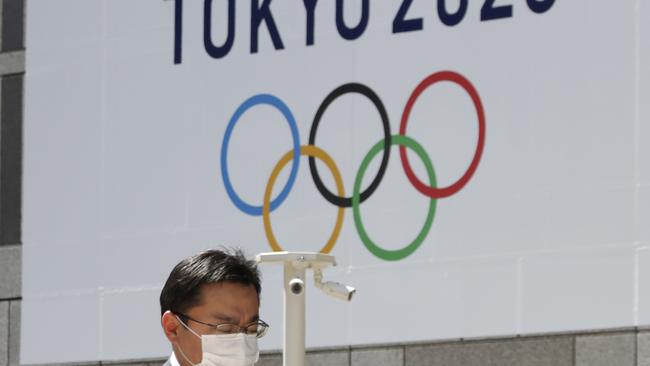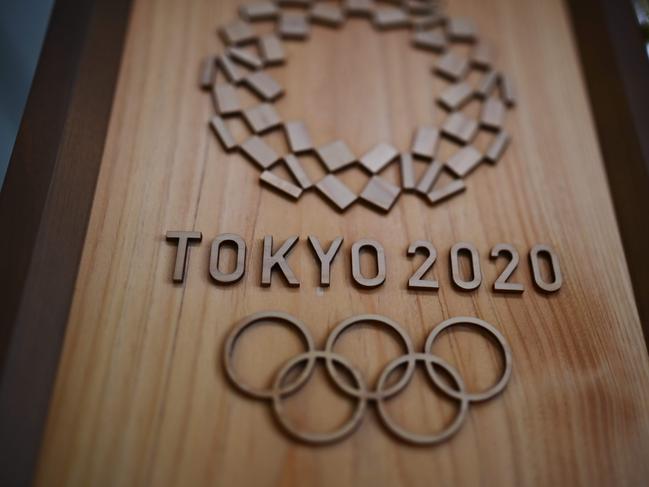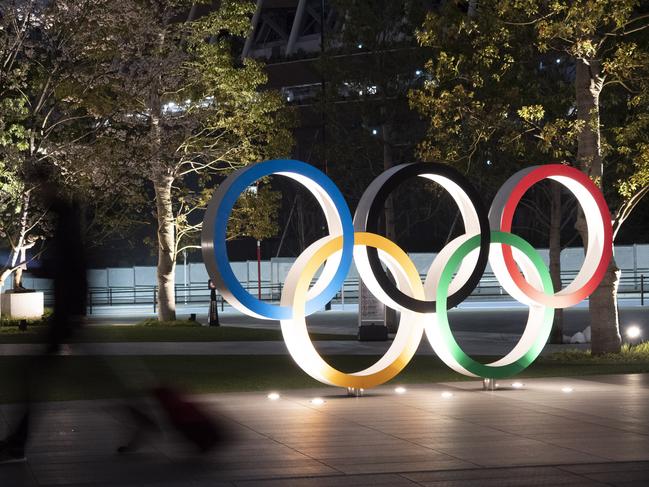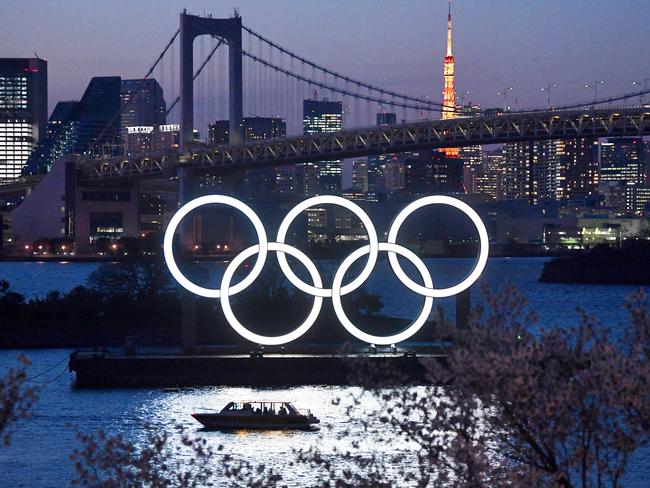Tokyo Olympics to be staged in 2021 at cost estimated in billions of dollars
The Olympic Games have never been postponed before, but the coronavirus has forced a major change of plans for Tokyo 2020 as officials announce new dates.

Olympics
Don't miss out on the headlines from Olympics. Followed categories will be added to My News.
Australian athletes will be forced to completely revise their training schedules after it was announced the Tokyo Olympics – the first to ever be postponed in history – will now go ahead in 2021.
Japanese officials say the coronavirus delay will cost them billions of dollars.
Timing for the Olympics will be almost exactly the same timeslot scheduled for the Olympics this year with the opening ceremony to be carried out on July 23, 2021, almost exactly one year after the games were due to start this year.
“The schedule for the games is key to preparing for the games,” Tokyo organising committee president Yoshiro Mori said.
It is a major blow for Aussie athletes who have put years of preparation in to be ready for the Olympics this year.

“This will only accelerate our progress.”
The IOC and Japanese organisers took the decision to postpone the Olympics because of the coronavirus pandemic.
Japan is officially spending $A20.5 billion to organise the Olympics. However, the reality is that the Japanese government says the costs are probably double that figure. All of the spending is public money except $A9.1 billion from a privately funded operating budget.
This year’s games were scheduled to open on July 24 and close on August 9.
The delay until 2021 will see the rescheduled closing ceremony on August 8. The announcement means a proposal to shift the games to spring to coincide with Japan’s famous cherry blossom season has been rejected.
That would have caused a difficult clash with European soccer and North American sports leagues.

Mr Mori said that organisers also realised that holding the games later would give nations more time to complete the qualifying events they have been forced to cancel because of the virus.
“We wanted to have more room for the athletes to qualify,” Mr Mori said.
While there have been previous Olympic cancellations due to wars, this will be the first ever postponement.
The new Olympic dates would clash with the world championships in track and swimming, but those events will now be held at another time.
“The IOC has had close discussions with the relevant international federations,” organising committee CEO Toshiro Muto said.
“I believe the IFs have accepted the games being held in the summer.”
Mr Muto said the decision to postpone the games was based on the need to protect the health of athletes, safeguard the interests of the athletes and Olympic sport, and the international sports calendar.

“These new dates give the health authorities and all involved in the organisation of the Games the maximum time to deal with the constantly changing landscape and the disruption caused by the COVID-19 pandemic,” the IOC said.
“The new dates … also have the added benefit that any disruption that the postponement will cause to the international sports calendar can be kept to a minimum, in the interests of the athletes and the IFs.”
The Japanese officials said the cost of rescheduling the Olympics will be “massive” – local reports estimate billions of dollars – with most of the expenses borne by Japanese taxpayers.
“Since the Olympics were scheduled for this summer, all the venues had given up hosting any other events during this time, so how do we approach that?” Mr Muto said.

“In addition, there will need to be guarantees when we book the new dates, and there is a possibility this will incur rent payments. So there will be costs incurred and we will need to consider them one by one. I think that will be the tougher process.”
Sports economist Professor Katsuhiro Miyamoto estimates the cost could be as high as $4 billion, taking into consideration the price of maintaining stadiums, refitting them, paying rentals, penalties and other expenses.
Originally published as Tokyo Olympics to be staged in 2021 at cost estimated in billions of dollars
